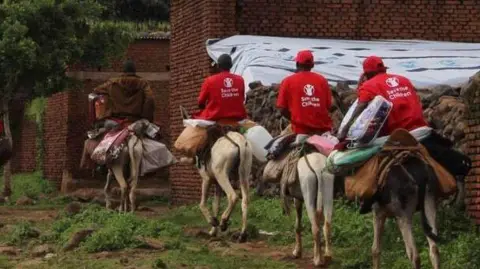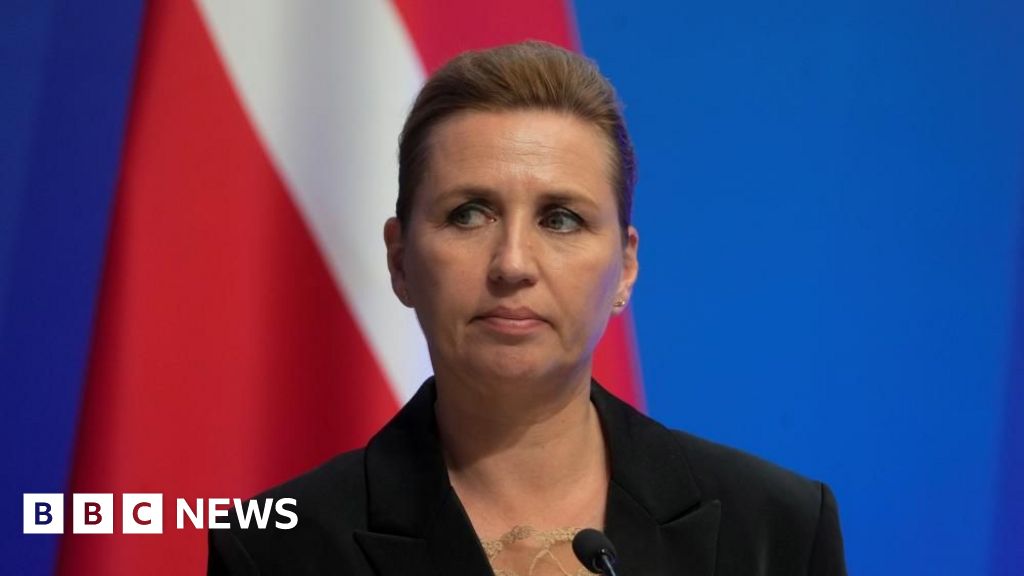The abrupt cessation of funds from the U.S. Agency for International Development has thrown global health and nutrition networks into disarray, affecting the livelihoods of vulnerable populations worldwide.
With the stroke of a pen, the Trump administration severed a vital lifeline, leaving communities grappling with "grief and dizzying chaos." U.S. foreign aid, which once empowered thousands of organizations to deliver essential health services, has been frozen for 90 days, and plans to drastically cut U.S. Agency for International Development (USAID) workforce have sparked alarm across the globe. A recent federal judge's order temporarily halted these plans, but the damage to the aid systems has already taken its toll.
Organizations that provided critical support—including H.I.V. medications for over 20 million individuals and nutritional supplements for malnourished children—are struggling to cope with the sudden loss of resources. According to over 25 aid workers, former USAID employees, and officials, the already complicated landscape of foreign aid is now teetering on the brink of collapse.
Mitchell Warren, the executive director of the H.I.V. prevention organization AVAC, which depended on USAID for 38% of its funding, encapsulated the situation: “You pull one of those blocks out and it collapses.” His warning articulates the widespread fears shared by many in the sector, as the gradual build-up of trust and institutional memory in humanitarian efforts crumbles in mere weeks.
Smaller organizations with limited staffing have already folded, while many mid-sized entities have had to furlough up to 80% of their workforce. Even large players in the aid space, such as Catholic Relief Services and FHI 360, are announcing massive layoffs and budget cuts.
As the world grapples with ongoing conflicts and struggling economies, the likelihood that other governments or philanthropies will step in to provide necessary funds is slim, further exacerbating the plight of those in desperate need. The combination of rising debt in recipient nations and the sudden withdrawal of support spells hardship for millions who depend on global aid services.
With the stroke of a pen, the Trump administration severed a vital lifeline, leaving communities grappling with "grief and dizzying chaos." U.S. foreign aid, which once empowered thousands of organizations to deliver essential health services, has been frozen for 90 days, and plans to drastically cut U.S. Agency for International Development (USAID) workforce have sparked alarm across the globe. A recent federal judge's order temporarily halted these plans, but the damage to the aid systems has already taken its toll.
Organizations that provided critical support—including H.I.V. medications for over 20 million individuals and nutritional supplements for malnourished children—are struggling to cope with the sudden loss of resources. According to over 25 aid workers, former USAID employees, and officials, the already complicated landscape of foreign aid is now teetering on the brink of collapse.
Mitchell Warren, the executive director of the H.I.V. prevention organization AVAC, which depended on USAID for 38% of its funding, encapsulated the situation: “You pull one of those blocks out and it collapses.” His warning articulates the widespread fears shared by many in the sector, as the gradual build-up of trust and institutional memory in humanitarian efforts crumbles in mere weeks.
Smaller organizations with limited staffing have already folded, while many mid-sized entities have had to furlough up to 80% of their workforce. Even large players in the aid space, such as Catholic Relief Services and FHI 360, are announcing massive layoffs and budget cuts.
As the world grapples with ongoing conflicts and struggling economies, the likelihood that other governments or philanthropies will step in to provide necessary funds is slim, further exacerbating the plight of those in desperate need. The combination of rising debt in recipient nations and the sudden withdrawal of support spells hardship for millions who depend on global aid services.




















